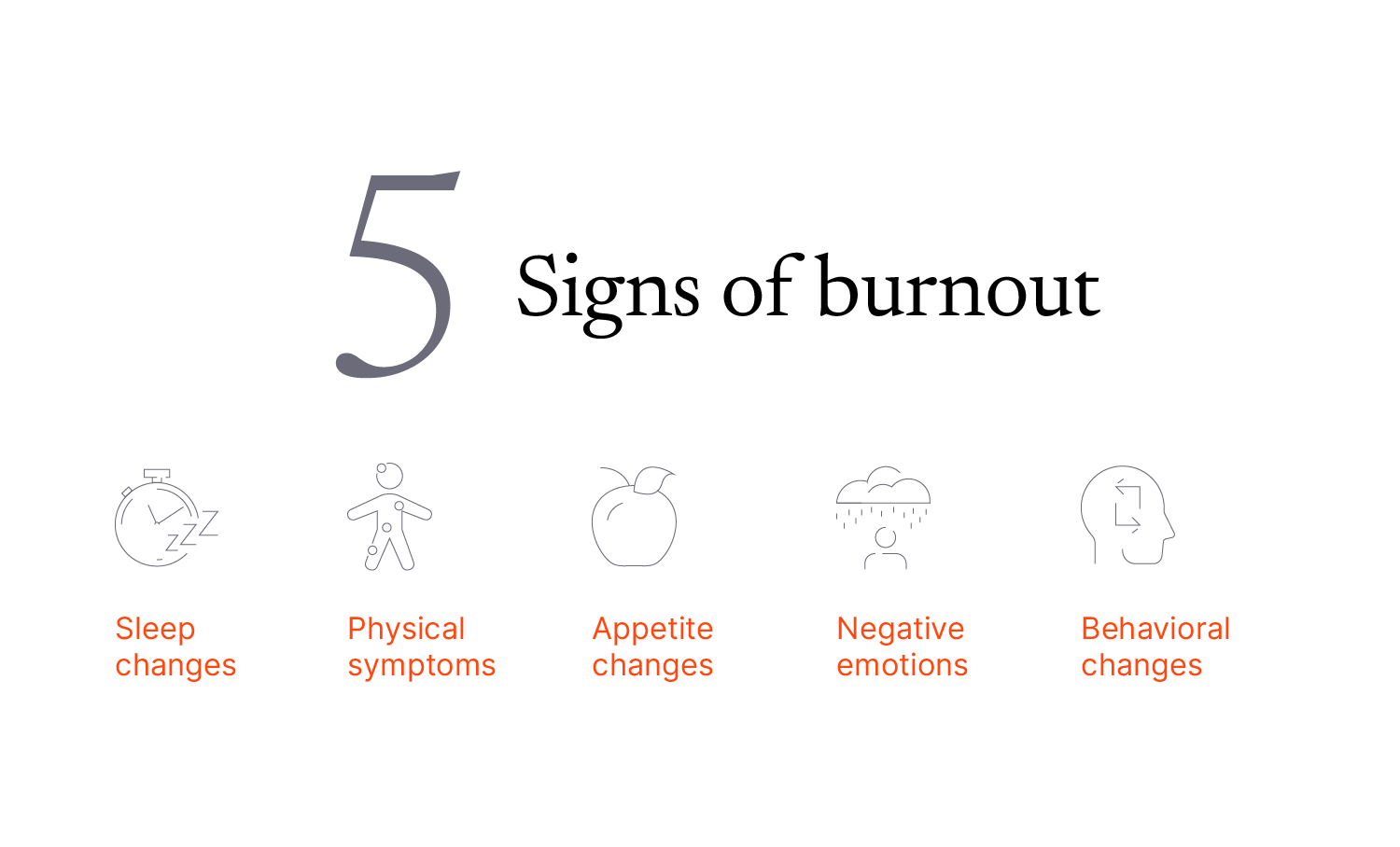Repetitive legal work can lower employee morale, leading to burnout and pushing skilled lawyers to leave the firm.
Burnout is a manifestation of chronic unmitigated stress, according to Dr. Lotte Dyrbye, a burnout research scientist at the Mayo Clinic. It encompasses physical, emotional, and mental exhaustion, which decreases motivation while increasing negative attitudes.
If this sounds familiar, that may be because burnout is a constant concern throughout the legal and financial services industries. Lawyers are always busy, but the demand for legal services grew during the COVID-19 pandemic. In private equity, general counsels face a growing volume of contracts and other legal documents.
While it’s normal for lawyers to feel stressed from their workload, burnout is a distinct issue that asset managers need to address to avoid losing their top legal talent.
What causes burnout?
Burnout is often career-related, though it doesn’t have to be. Life circumstances can lead to burnout or exacerbate work-related burnout symptoms. For instance, an in-house lawyer might struggle to balance work with simultaneously caring for elderly parents and their children.
For GCs, burnout tends to be job-related and due to:
- Overly demanding expectations
- Large volumes of routine contracts
- Monotonous and unchallenging legal tasks
- Expectations of working long hours to turnaround NDAs and other routine agreements quickly
- Dysfunctional, chaotic, or high-pressure environments
- Lack of control at the firm and an inability to influence business decisions
- Unclear job expectations
- Lack of social support for stress
- Lack of balance between work and their personal lives
- Lack of recognition from the asset management firm for their hard work and achievements
5 signs of burnout

1. Sleep changes
Individuals experiencing burnout often see their sleeping habits change. They might have trouble falling or staying asleep and experience nightmares. Lack of sleep over time can lead to impairments during the day and decrease a person’s quality of life.
2. Physical symptoms
Burnt-out individuals often experience painful or uncomfortable physical symptoms, such as headaches, nausea, gas, indigestion, and exhaustion. These illnesses could contribute to a decline in a lawyer’s work product or lead to them taking more sick days or paid time off than usual.
3. Appetite changes
Burnout can cause appetite changes, leading someone to eat more or less than usual, which could lead to weight gain or loss.
4. Negative emotions
Burnt-out individuals often feel some combination of hopelessness, helplessness, self-doubt, disillusionment, cynicism, detachment, and apathy. These feelings can impact how they interact with others, including colleagues, and their feelings of self-worth and confidence.
5. Behavioral changes
While GCs might not notice some changes in their colleagues, like whether or not they’re sleeping well, they’ll likely notice changes to their typical behavior at work. For example, burnt-out lawyers might withdraw from their responsibilities at work, become irritable, and isolate themselves from friends and coworkers. Burnt-out lawyers also might use alcohol or drugs in an attempt to cope, and in extreme cases, it could be noticeable at work.
Are stress and burnout the same?
No, stress and burnout are not the same, though a lawyer can experience both simultaneously.
Stress is characterized by over-engagement, whereas burnout is characterized by disengagement. Stress has a sense of urgency, while burnout involves feelings of apathy. In other words, a stressed lawyer is focused on doing it all, while a burnt-out lawyer might lack the motivation to do their work well and on time.
Are depression and burnout the same?
No, burnout and depression are not the same, though they can look similar or overlap.
Depression is a diagnosable and treatable medical condition. A person can experience depression without any particular trigger, whereas burnout tends to be in response to specific circumstances.
Symptoms of depression tend to be more general and follow a person no matter where they go or what they do. For instance, if that individual changed jobs or took a vacation, it wouldn’t ease or cure their depression. However, if a burnt-out individual makes changes in their life, like moving to a new work environment, their burnout can subside.
How GCs can spot burnout in their in-house lawyers
Burnout might not be evident to friends, family, and colleagues. A person can experience many difficulties while maintaining their performance at work. However, if the circumstances causing the burnout don’t change, the individual’s experience will likely become noticeable.
GCs worried about burnout-related turnover can look out for a person:
- Turning in contracts or other legal tasks late or of lower quality
- Exhibiting a lack of motivation and decreased job performance
- Taking more sick days than normal
- Being unusually irritable and impatient with legal and business colleagues
- Expressing dissatisfaction in 1:1s or surveys
Ultimately, if those with decision-making power fail to improve working conditions, burnt-out lawyers might seek opportunities elsewhere.
GCs can help their teams by outsourcing high-volume contracts
There isn’t one solution to job-related burnout. It’s often a complex set of circumstances that requires numerous changes to in-house lawyers’ workloads and processes. That said, asset managers’ GCs can make a significant difference by adopting human-in-the-loop contract automation and taking high-volume, routine contracts off their teams’ plates.
Ontra’s Contract Automation solution includes a global network of corporate lawyers. These freelance lawyers use the contract automation platform to reliably process NDAs and other routine agreements with short turnaround times. While Ontra’s legal network executes these agreements, GCs can focus on more satisfying, mission-critical legal work.


